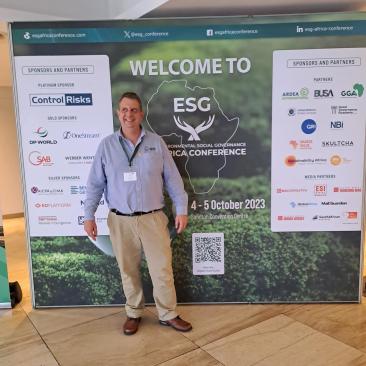
ESG Africa Conference: driving the Environmental Social Governance Discourse in Africa
Our Marketing Manager, Gerard Busse attended the second ESG Africa Conference on the 4th and 5th September, in which more the 360 delegates from more than 20 African Countries participated, which was a 20% increase in attendance from the first conference held last year.
The conference’s core theme, “Sustainable Future Through Leadership,” underscores the essential role that leaders play in ensuring their organizations align with ESG principles and integrate them into their overall strategy.
You ask what is ESG?
ESG stands for “Environmental, Social and Governance” which described as a set of practices (policies, procedures, metrics, etc.) that organisations implement to limit negative impact or enhance positive impact on the environment, society, and governance bodies. (www.apiday.com)
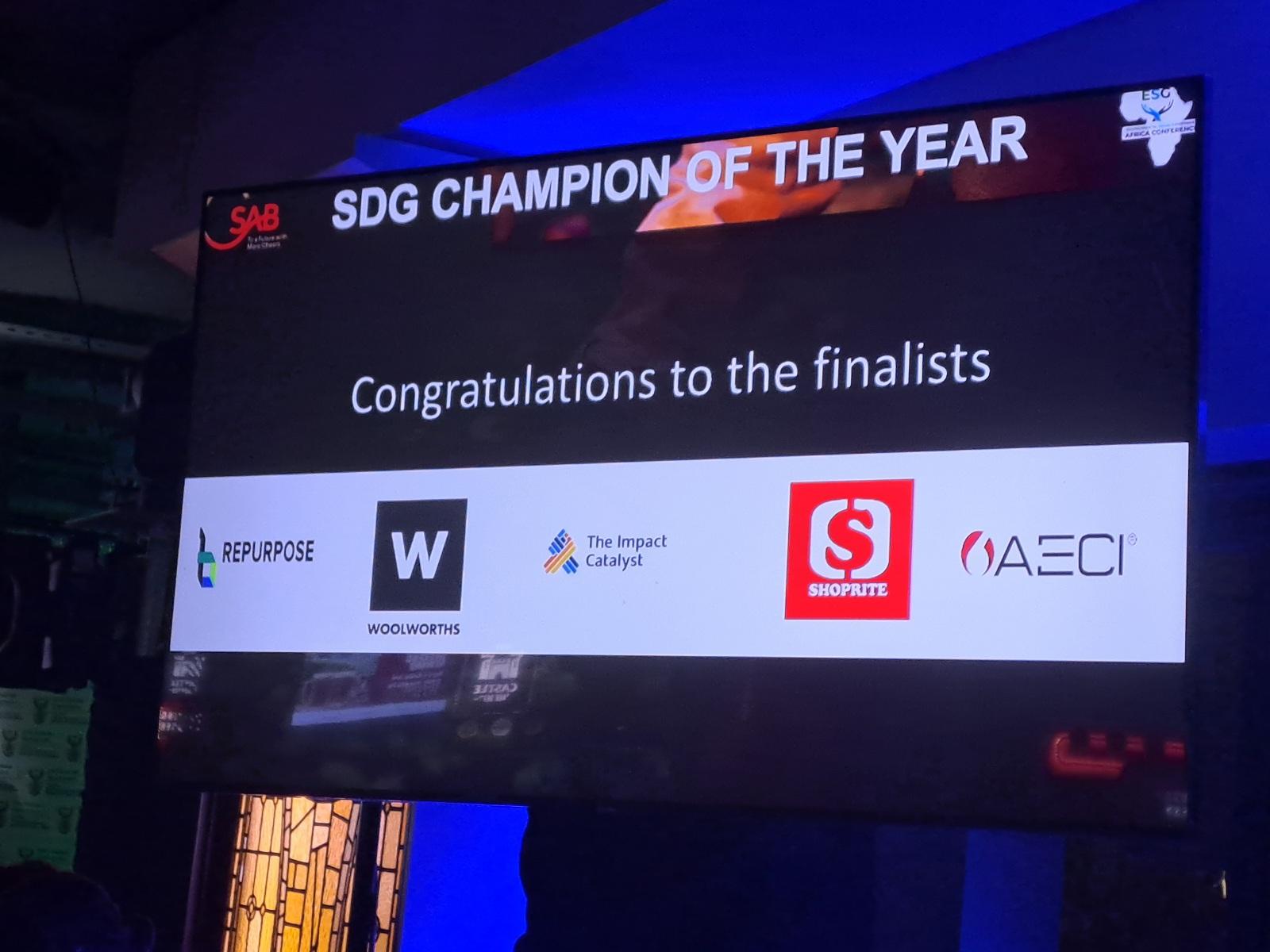
At the inaugural South African Breweries Beyond Awards: Championing Sustainability in Africa held on the Tuesday evening proceeding the Conference, it was absolutely awesome to see two of our FSC retail partners the Shoprite Group of Companies and Woolworths Holdings nominated for the SDG Champion of the Year. The winner was Woolworths. Below is Feroz Koor receiving the award from Minister for Small Business Development, Honorable Stella Ndabeni-Abrahams.
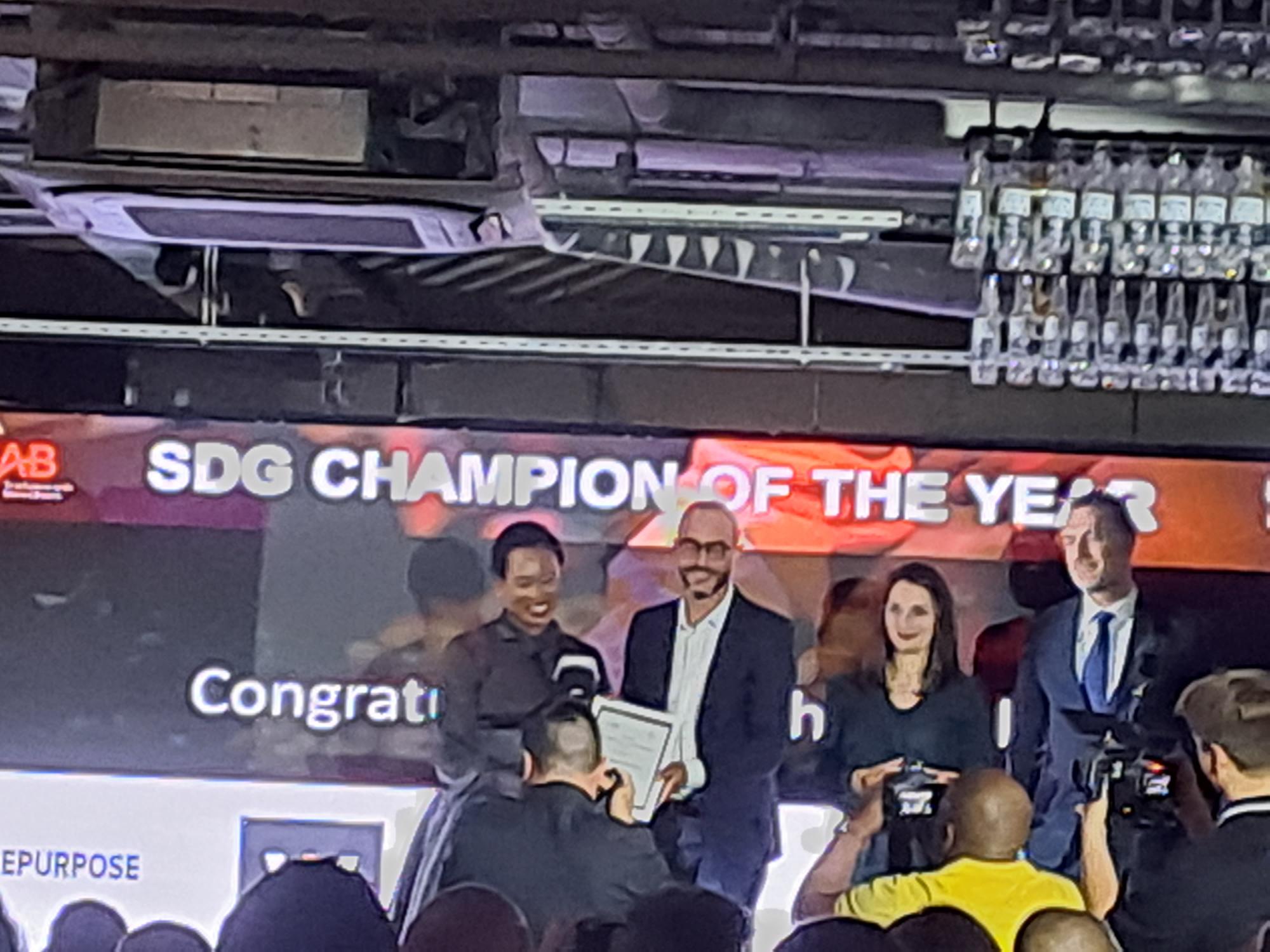
Congratulations to Woolworths and their sustainability team.
The opening keynote speaker was Dr. Ndidi Nnoli-Edozien, Board Member from International Financial Reporting Standards (IFRS). In June 2023, the International Sustainability Standards Board (ISSB) issued its first two IFRS® Sustainability Disclosure Standards, IFRS S1 General Requirements for Disclosure of Sustainability-related Financial Information and IFRS S2 Climate-related Disclosures.
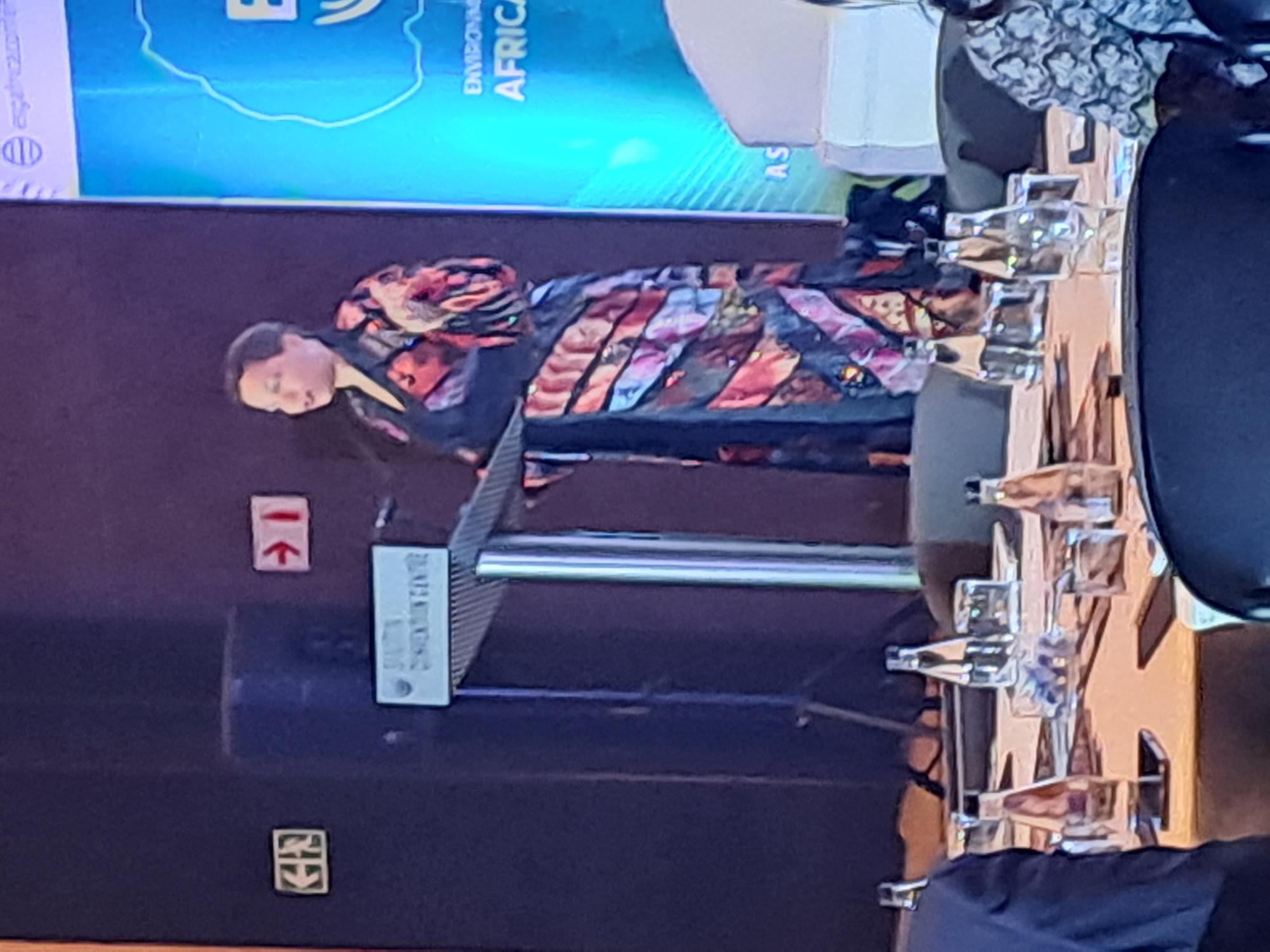
Dr. Ndidi Nnoli-Edozien, Board Member from International Financial Reporting Standards (IFRS).
IFRS S1 and IFRS S2 are built on and consolidate the TCFD (Task Force on Climate-related Financial Disclosures) recommendations, SASB (Sustainability Accounting Standards Board) Standards, CDSB(Climate Disclosures Standards Board) Framework, Integrated Reporting Framework and World Economic Forum metrics to streamline sustainability disclosure.
Day 1 was future focused and tackled some thorny issues coming down the road such as:
- The changing leadership requirements and how with that leadership, ESG can help transform organisations rather than be a roadblock to progress. Being an ESG influencer is a critical skill we all need when engaging stakeholders – both internal and external to the organisation.
- Consumerism and how to deal with that versus resource use and cost: How do we grow in a more sustainable manner and what does that mean for our business models?
- Working with our value chains and double materiality, and determining what do we need to do differently. This also links to the circular economy - are we driving that sufficiently as well as trade issues.
- Double materiality takes the concept of materiality in sustainability reporting one step further. According to double materiality, a company must report both on how its business is affected by sustainability issues (“outside in”) and how their activities impact society and the environment (“inside out”). (https://www.workiva.com/blog/what-double-materiality-heres-what-you-need-know)
- The changing role of stakeholders and how we can collaborate and co-create to add value best practice and challenges
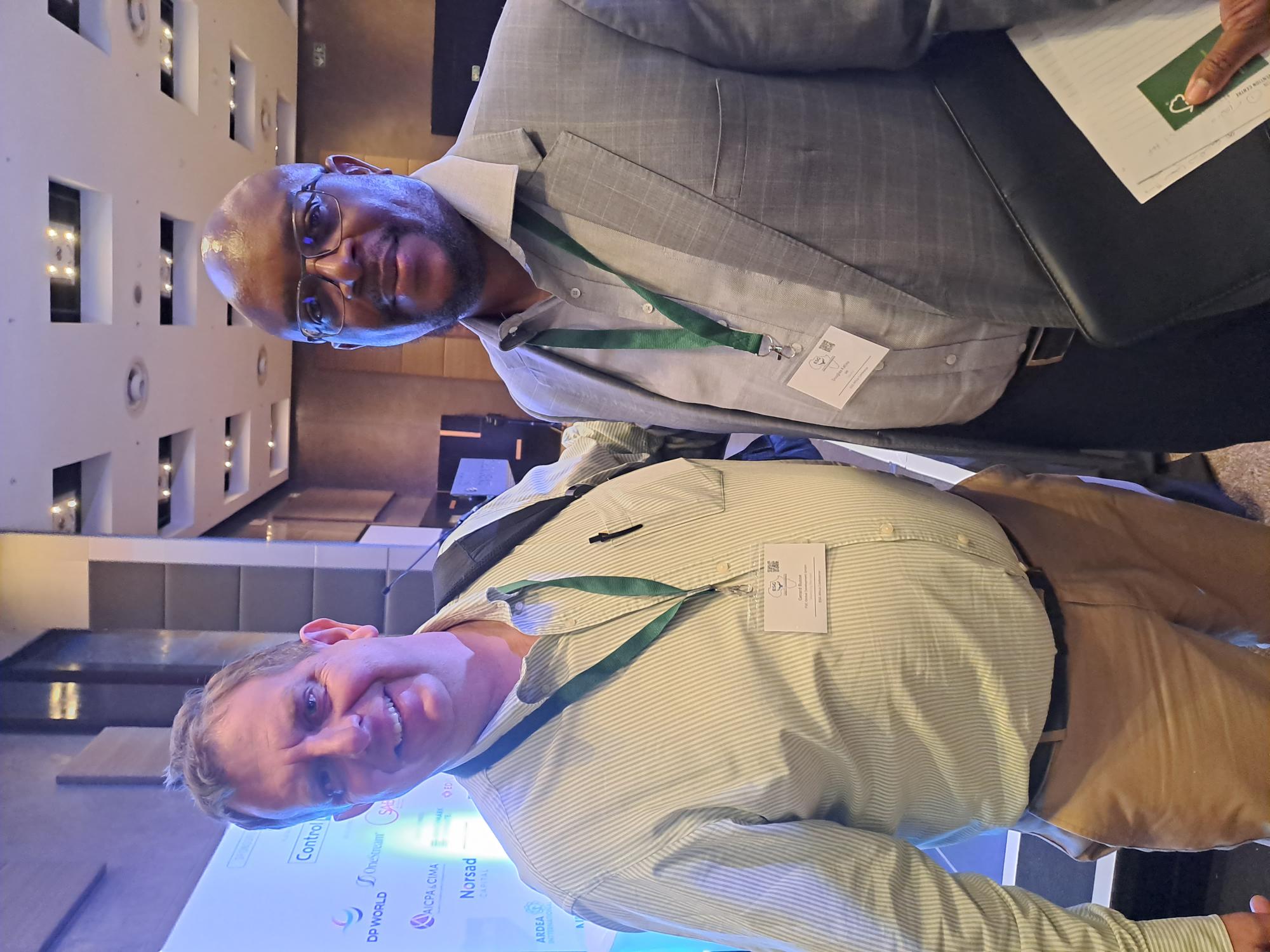
Gerard Busse, FSC with Douglas Kativu from Global Reporting Initiative
Day two focused on the burning issues that have to be dealt with daily and this included:
- Sectoral breakouts in key sectors to flesh out wicked problems and potential solutions with a focus on climate change. Gerard Busse attended the agricultural sector, and was part of a lively discussion on the important role that smallholders play in food security in Africa , and the challenges that they face.
- Reporting including emerging trends, what technologies and processes can be put in place to help report and track implementation and how to calculate impact in the African context.
- SMME’s and their role in implementing ESG along the supply chain. What partnerships and collaboration models can we use? How can it help diversity and inclusion? What does it mean for our skills development programmes?
- Changing culture to support ESG what tactics can we use? How do we integrate this with other initiatives such as climate change or safety?
FSC Southern Africa supported by sponsoring branded FSC-certified notebooks and branded pens.
FSC definitely has a role to play in explaining the importance of our certified forests and related value chains in these ESG discussions. I would urge out certificate holders and retail partners to participate and attend the conference next year.
